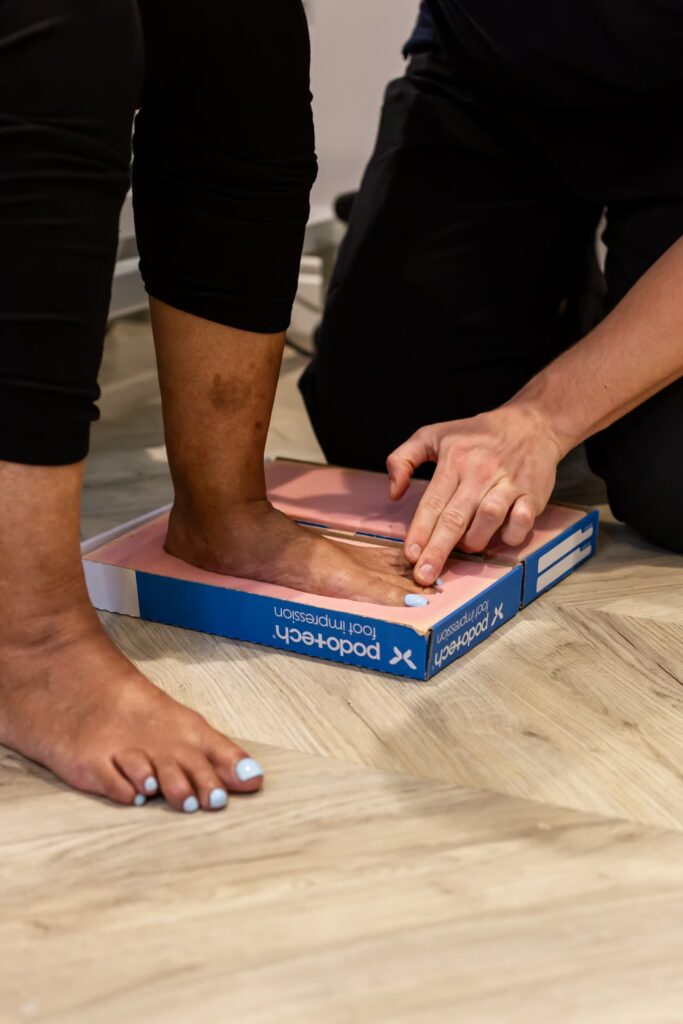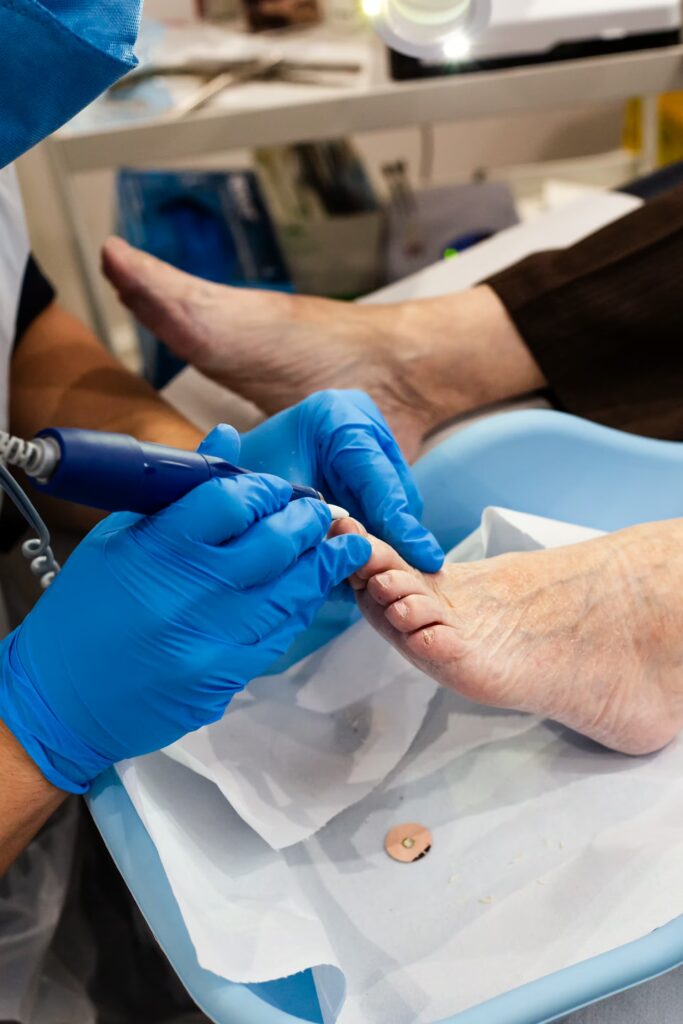About Core Podiatry
Podiatrists are healthcare professionals who specialise in foot health and have undergone extensive training in order to assess, diagnose and treat a variety of different foot and lower limb conditions. A podiatrist can also correct foot abnormalities, treat infections and ultimately seek to maintain a patient’s quality of life.
At The Courtyard Clinic general treatment of the feet is an important part of what we do – we believe that prevention is better than cure. Some of the conditions treated are:
Callus and Cracked Heels
Callus describes an area of thickened skin. As skin thickens, it becomes less flexible and this can be uncomfortable to walk on. Particularly in summer, callus can also fissure and crack particularly around the heels.
This is painful and often too-far developed for a hand file or pumice stone to remove in the bath! Scalpel debridement is a fast and instant reduction in thick skin, and advice regarding footwear and topical emollient can be helpful in reducing callus formation.
Corns
Corns are due to mechanical friction (often from footwear) or pressure on the skin, such as over bony prominences under the ball of the foot or between toes. As the tissue experiences increased pressure, the body attempts to protect itself by laying down a layer of callus. If this callus builds up focally over a small area, then the compacted hard tissue will build inwards and can result in painful lesions. Patients describe a sharp pain “like a piece of glass”.
Corns can sometimes build inward so deeply they can cause bruising and bleeding under the skin. If left unattended, this can result in an ulcer or wound. This is particularly dangerous in a Diabetic or immunosuppressed person who may then be vulnerable to infection and complication.
Diabetic Foot Check
A diabetic foot check is an important regular check for patients with diabetes in order to detect and manage potential foot problems early. It involves a thorough examination of the feet, including sensory examination, skin health checks, and circulation testing. Regular foot checks (usually annually) can help prevent foot complications, which can be very problematic in those with diabetes due to nerve damage and compromised blood flow.
Ingrown Toenails
Involuted nails have rounded curved edges and irritate the sulcus (gutter) of the nail. As the nail grows in length, the curved edge tends to “pinch” tighter and can be painful as it clears the skin. Sometimes the curved edge can cut into the flesh and result in an infection.
Plantar Warts/Verrucae
Verrucae warts are commonly found on the sole of the foot, and are due to the Human Papillomavirus.
Generally, warts are self-limiting – meaning they can resolve by themselves. The time frame for this differs between patients and can be from a few months to a few years! If the warts are spreading or becoming painful, then treatment is advised.
Fungal Nail Infections
A fungal nail infection (Onychomycosis) is a common infection that can involve any part of the nail. It is most common in toenails, but can rarely occur in fingernails as well.

Biomechanics
Podiatrists are trained to prescribe customised insoles to aid the mechanics of the feet. These are called Orthotics and are designed to mechanically support the foot in such a way as to improve movement and stability to aid in the treatment and rehabilitation of many different conditions.
The semi-bespoke Orthotics we provide are made by a biomechanics laboratory in Suffolk. Ryan O’ Reilly, our Podiatrist performs a detailed examination of your feet to determine the required prescription. He then takes a foam imprint of your feet, this is used by the mechanics lab to manufacture an orthotic to fit you perfectly.
In most cases you will also receive exercises to improve the stability and flexibility of your feet.
